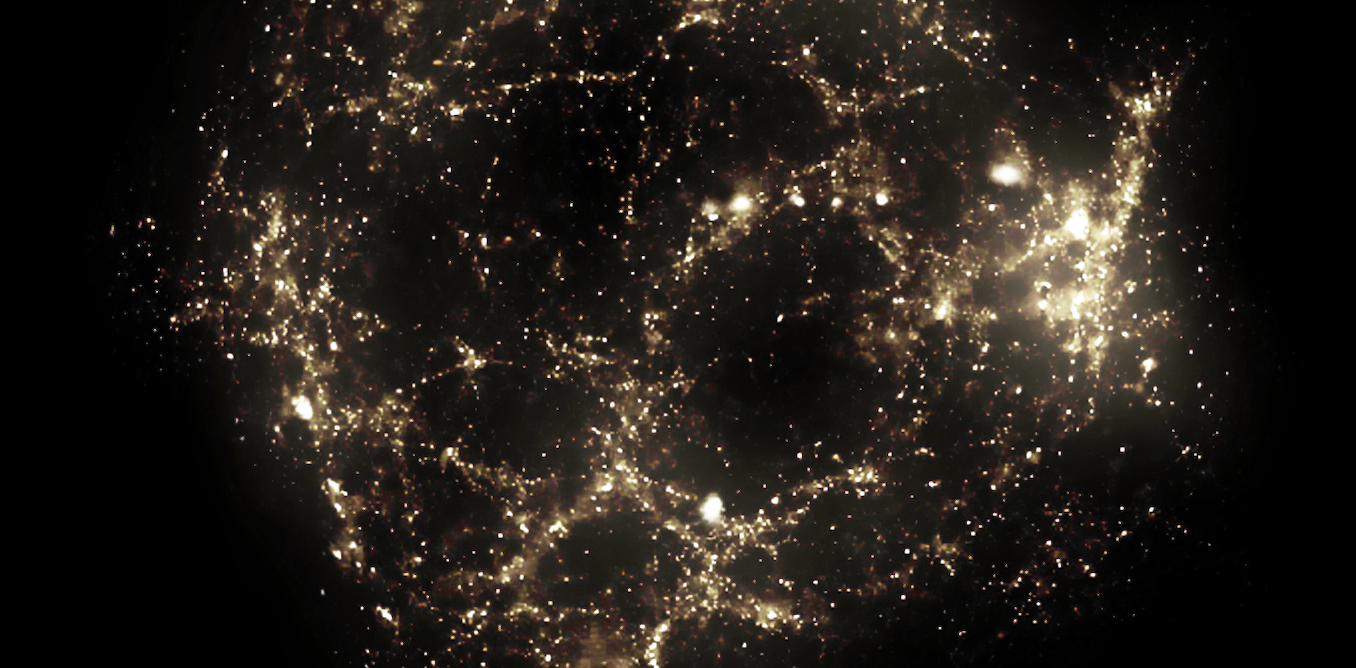One of the biggest mysteries in cosmology is the rate at which the universe is expanding. This can be predicted using the standard model of cosmology, also known as Lambda-cold dark matter (ΛCDM). This model is based on detailed observations of the light left over from the Big Bang – the so-called cosmic microwave background (CMB).
The universe’s expansion makes galaxies move away from each other. The further away they are from us, the more quickly they move. The relationship between a galaxy’s speed and distance is governed by “Hubble’s constant”, which is about 43 miles (70 km) per second per Megaparsec (a unit of length in astronomy). This means that a galaxy gains about 50,000 miles per hour for every million light years it is away from us.
But unfortunately for the standard model, this value has recently been disputed, leading to what scientists call the “Hubble tension”. When we measure the expansion rate using nearby galaxies and supernovas (exploding stars), it is 10% larger than when we predict it based on the CMB.
In our new paper, we present one possible explanation: that we live in a giant void in space (an area with below average density). We show that this could inflate local measurements through outflows of matter from the void. Outflows would arise when denser regions surrounding a void pull it apart – they’d exert a bigger gravitational pull than the lower density matter inside the void.
We would get a terrible seed at start -.-
But it does pose some interesting thought. Being isolated inside a void could serve some advantages if the universe is also not quite as devoid of life as we thought.
So, the universe may not be that empty, we just live in a bad neighbourhood
Or a good one, if being in a denser area means a higher chance of being in the danger zone of a quasar or experiencing a gamma ray burst. Our galaxy could be in a Goldilocks zone just like our planet is.
We’ve had a several billion year run where nothing in the universe sterilized our planet (knock on wood, which might only be possible on this planet). That might be one of the great filters.
danger zone
Way to make Kenny Loggins wander through my head.
I’m absolutely sure of it. It seems pretty obvious when you consider that outer space is mostly just a gigantic void without substance. Our math is just now catching up to the reality of our situation.
It seems pretty obvious when you consider that outer space is mostly just a gigantic void without substance.
I think you’re confusing two different ideas of “void”. You’re talking about outer space in general being mostly space but the article is talking about a contrast in the density of matter distributed in different areas of the universe, using the word “void” to refer to an area of low density.
I could not possibly care less. Go f#ck yer mum and keep telling yourself how great you are.
Are you being sarcastic?
They sound more high than sarcastic.
No, speaking the truth. Anyone with any clue knows that space is mostly just an empty void - there isn’t much matter between the bits of matter that are there. If you’ve ever read any of Stephen Hawking or Carl Sagan’s work, you know what it is I’m talking about.
If you’ve ever read any of Stephen Hawking or Carl Sagan’s work, you know what it is I’m talking about.
I’ve read some of Stephen Hawking’s works and it seems clear to me that you’re muddled in your thinking.
That’s too bad for you. But I’ll get over it.





